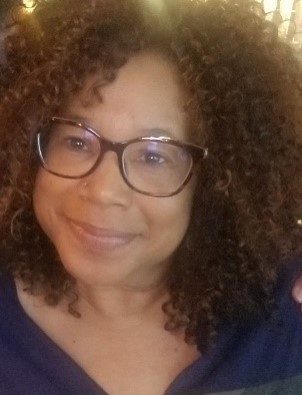


Several years ago, Hitachi embarked on a mission to develop and nurture an ecosystem of employee resource groups (ERG) dedicated to amplifying the diverse voices and demographics of our company. Numbering eight in total to date, these voluntary, self-directed groups work to build community through knowledge sharing and serve as a testament to the positive impact an inclusive workforce provides. One of the newest ERGs to be formed is the Black Employee Resource Group (BERG), which is Co-Chaired by Angela Menefee, Global Employee Relations & Compliance Manager, and Bill Booker, Pre-Sales Solutions Architect Expert, each of Hitachi Vantara. In the spirit of Black History Month, Senior Manager of Thought Leadership, Michael Zimmerman, caught up with Angela to get her take on the BERG, whether the landscape has changed for Blacks in tech, and the meaning of Black History Month itself.
For starters, how long have you been with Hitachi Vantara?
My employment began with HV on December 1, 2021.
What attracted you to the company?
While researching the company and the role, and from what I've heard and read
about the company, it seemed like an excellent fit for my personality and values.
I was also looking for a global role where I could contribute to the organization by
applying my expertise in employee relations and compliance.
You are a Co-Chair of Hitachi's new Black Employee Resource Group (BERG).
What is the mission of the group and are you seeing traction?
The vision of BERG is to empower, support, and elevate Black
professionals within the organization. We aim to foster an inclusive and equitable
workplace where Black employees thrive, excel, and contribute to the company’s success.
We aim to create an environment that recognizes, values and amplifies Black professionals'
unique experiences, perspectives, and talents. We established the BERG in August 2023 and since
then we have had over 100+ team members attend our happy hours, webinars, and speaker engagements.
Although it's been less than a year since The BERG was initiated, we are already seeing traction
on our pillars. We have created a safe and supportive space for our team members who share a common
identity through a new forum called "The Meeting Place." The Meeting Place is an open forum for BERG
members who share a common identity to raise concerns or issues. Evidently, this has resonated with
our team members based on the discussion and attendance in these sessions.
Have you ever managed such a group before? If not, did you accept this assignment with trepidation or eager anticipation?
No, I have never managed an ERG; I had great support from my leadership team and colleagues,
who made the decision easier for me to say yes, I will co-chair!
What was your initial impression of the BERG program, and has that impression changed since running it?
My initial thoughts were that we are off to a good start; I'm blown away with what we have accomplished in a short time.
More broadly, how has the tech landscape changed for African Americans over the last couple of decades? Evolved, devolved, remained the same? How so?
Not evolving enough; there are less than 10% of African Americans in tech, and the ones that are in tech
continue to face barriers to career advancement, microaggressions in the workplace, and racism.
What does Black History Month mean to you? And how has this feeling changed over time?
BHM holds deep significance and memories; it represents a time to reflect, celebrate,
and educate myself and others about Black people's rich and diverse history, culture, and global
contributions. My feelings haven’t changed over the years, mainly because of my ancestral history.
For me, black history is remembering that my great-great-grandfather chose to leave the South rather
than continue to experience sharecropping and segregation. He was an enslaved person who was helped by
his ally, a white man named Menefee. Mr. Menefee hid my great-great-grandfather, a runaway slave, in his
home and led him North. To denote his new status as a free man, my great-great-grandfather changed his slave
name from Jones to Menefee. For me, black history will always be about remembering "Mr. Menefee" and all of
those who helped my great-great grandfather and other enslaved people secure freedom. Without them, there would be no me.